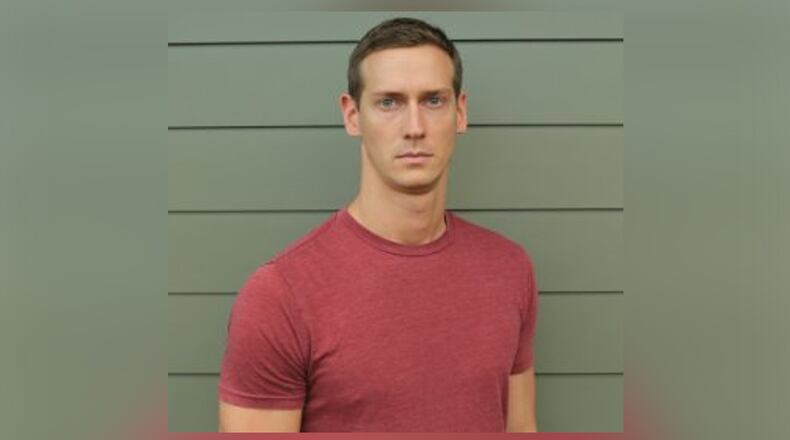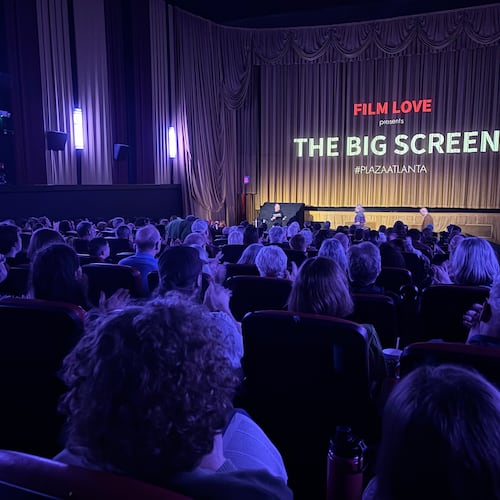Originally posted Tuesday, December 10, 2019 by RODNEY HO/rho@ajc.com on his AJC Radio & TV Talk blog
The civil case between AMC and the stuntman who died in July, 2017 on the set “The Walking Dead” comes down to who is to blame.
Did 33-year-old stuntman John Bernecker make mistakes falling off a balcony railing that led to him to miss the "catcher" pads and boxes that were meant to absorb the fall? Or did the stunt coordinator, his bosses and even the actor he was working with contribute to his death?
The jury trial began this week in state court judge Emily Brantley's courtroom in Gwinnett County.
The parents of Bernecker last year filed a wrongful death lawsuit against the production companies connected to the AMC drama as well as several individuals involved in the incident including executive producer Thomas Luse, stunt coordinator Monty Simons and assistant director Jeff January.
At AMC-owned Raleigh Studios in Senoia, while AMC's "The Walking Dead' was shooting its seventh episode of season eight, Bernecker during the stunt landed on his head and neck on the pavement and died soon after. His torso and head missed the pad by two to three feet, according Kelly Kennett, a reconstructionist expert hired by the plaintiff.
During the opening statements, both sides played a video which revealed a portion of the fall that led to his death. In the video, Bernecker is rehearsing with actor Austin Amelio, who played Dwight on the show.
Dwight, as a double agent, is supposed to shoot a character named Mark on a balcony and force him over the railing. Amelio is not supposed to touch Bernecker, playing the character as the stunt double.
As Bernecker starts to position himself to fall over the railing, Amelio appears to shove the butt of his prop gun into Bernecker. But the video is not 100 percent clear if Amelio touched Bernecker. Even if he did, it’s also unclear if this caused Bernecker to change how he was going to fall, the defense said.
The idea, based on the script, was that the character would become instantly unconscious and would just fall over the railing. Instead, during the rehearsal, Bernecker grabbed onto the railing in a way that propelled him in a trajectory underneath the balcony and away from the intended padded target.
Bernecker's lead attorney Jeffrey Harris claims AMC took shortcuts that made Berneker more vulnerable, such as creating a landing pad that was too small and not providing proper safety staffing.
“This was a completely preventable accident,” said Harris, lead attorney representing the Bernecker family during his opening arguments Tuesday before the jury.
Harris is a Savannah-based attorney who also represented the family of Sarah Jones, the camera assistant killed on the set of the film "Midnight Rider" in 2014. Harris won an $11.2 million verdict in that case.
The defense said the Atlanta-based Bernecker fully assumed the risks and responsibilities of doing dangerous stunts. They said he did not object to the landing pad set up and has more than 100 stunt credits to his name, including “Game Night,” “Black Panther” and “Rampage.” Bernecker also ran his own stunt company.
"He accepted that job willingly," said the defense lead attorney David Dial. "No one coerced him... He could have asked for extra safety equipment. He could have asked for a spotter or where the catcher be placed."
In other words, Bernecker knew what he was doing, Dial said. So the accident was his responsibility, not his clients.
AMC also claims Bernecker is an employee of Stalwart Films, the company commissioned to oversee the production of “The Walking Dead” and only qualifies for workers compensation, not any wrongful death reward.
But Harris said his team plan to offer evidence that Bernecker was clearly an independent contractor.
The trial opened with minor drama over the defense attorney Dial’s opening statements, which the plaintiffs found to be overly argumentative and more like a closing argument. After multiple objections by Harris, Judge Brantley requested the jury leave the room.
With the jury out of earshot Brantley admonished Dial and said if he did it again, she’d do so in front of the jury. Dial apologized and was much tamer after the jury returned, omitting several slides that the plaintiffs felt were rebutting a case Harris had yet to present.
The jury trial, based on the list of witnesses, could last more than a week.
The case ended up in Gwinnett County (not Coweta County) because the defendant’s registered agent is based there.
About the Author
Keep Reading
The Latest
Featured




